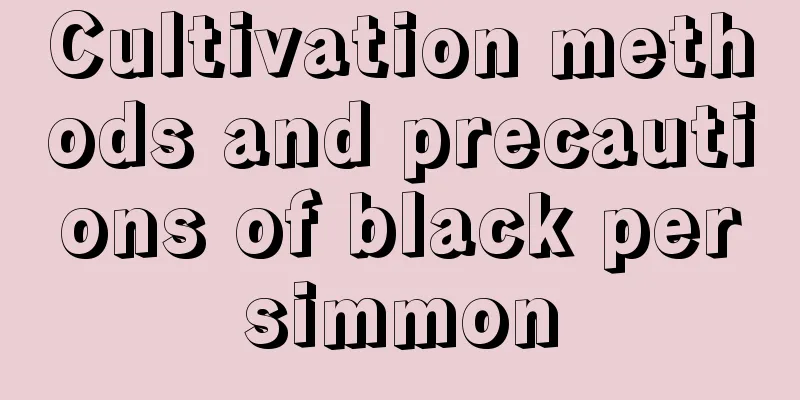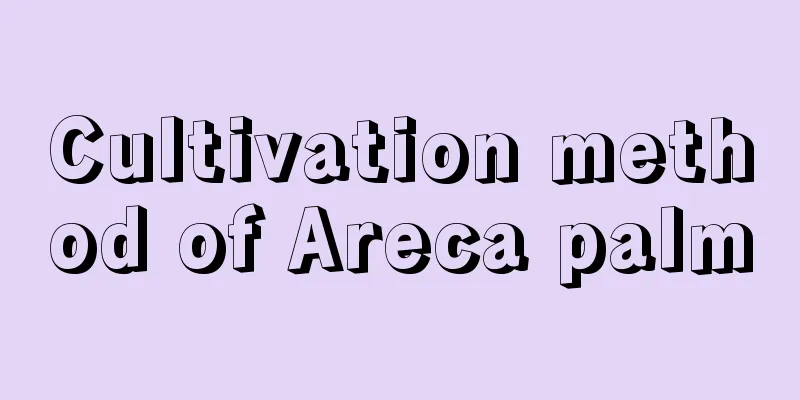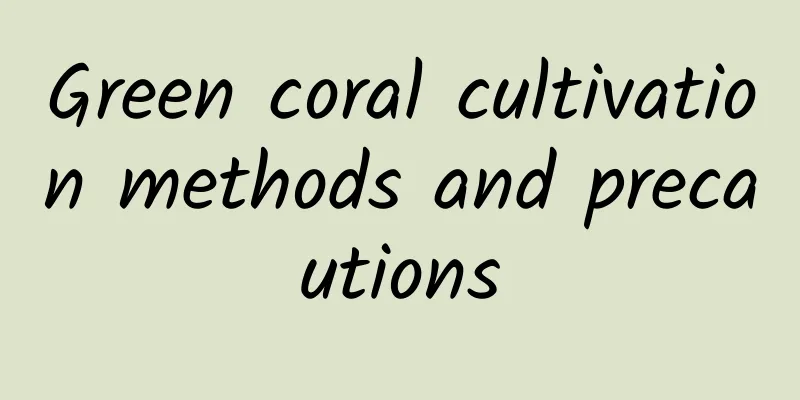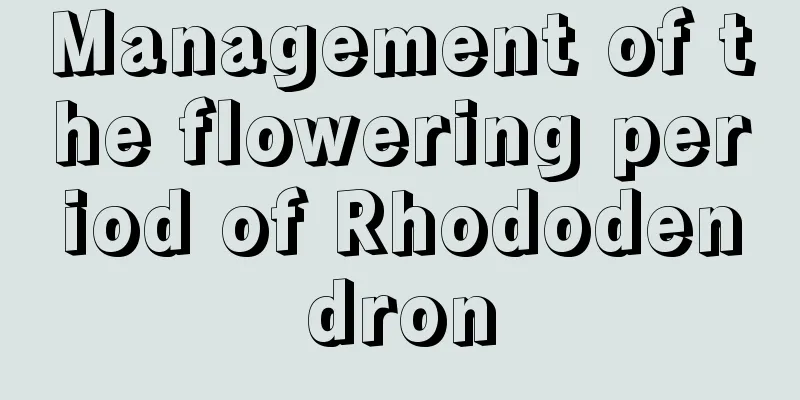Cultivation methods and precautions of black persimmon

1. Maintenance methods1. Flower pot: Black persimmon is mostly used in bonsai making, so it is best to choose a flower pot with strong air permeability and good water absorption capacity. Ordinary ceramic pots, clay pots, stone pots, and porcelain pots can all be used for planting, among which purple clay pots are the most popular. 2. Substrate: Black persimmon can also grow in relatively poor soil. If conditions permit, you can choose soil with strong air permeability and good fertility. You can mix leaf mold and nutrient soil and then plant it. 3. Water: Black persimmon likes to grow in a humid environment. You can water it in small amounts every 2-3 days to keep the soil slightly moist. In the hot summer, you can increase the amount and frequency of watering appropriately. You can also use a watering bottle to spray a small amount of water around to cool down and replenish moisture for the leaves. 4. Nutrients: Apply more nitrogen fertilizer when new branches grow in spring to promote healthy growth of branches. During the growing period, more phosphorus fertilizer can be applied, and then wood ash can be sprinkled every once in a while. 2. Breeding techniques1. Sowing: The black persimmon fruits will mature in autumn. After picking the ripe fruits, take out the seeds and dry them. Try to dry them in a ventilated place to prevent the seeds from rotting. Wait until the spring of next year, prepare fertile and moist soil and then plant it. 2. Cutting: It is mainly carried out in spring or summer every year. Prepare fertile and moist soil before cutting. Cut the branches from the mother plant and insert them directly into the soil. 3. Problem diagnosis and treatment1. Angular spot disease: If the fruit becomes soft or falls prematurely, it may be diseased. July and August every year are the outbreak period of angular leaf spot disease. Before that, May and June are roughly its incubation period. You can spray 75% of thiophanate-methyl diluted one thousand times on the back of the leaves for prevention and control. 2. Peach borer: The peach borer overwinters in cocoons every year and feeds on fruits. There is a major outbreak in August and September every year. In the early stages of the outbreak, dichlorodiphenyltrichloroethane can be mixed with water and sprayed. IV. Other issues1. Is it poisonous? The fruit is poisonous. The shape of the fruit is similar to that of common edible persimmons, which may cause accidental ingestion. You should try to stay away from it. Be especially careful when bringing children to watch, so as to avoid unnecessary trouble. 2. Flowering period: Every spring is the flowering season for black persimmon. The flowers have charming fragrance when they bloom. Most of them are white and highly ornamental. |
<<: Lettuce cultivation methods and precautions
>>: Yarrow cultivation methods and precautions
Recommend
Cultivation method of potted orchid
1. Maintenance methods 1. Temperature: Between 15...
Can tea be used to water flowers? What flowers are suitable for watering?
Can tea water be used to water flowers? Generally...
Why doesn't hyacinth grow roots?
1. Reasons 1. Poor quality Many flower lovers acc...
Rose planting conditions: where to plant roses
Rose planting conditions Roses are generally plan...
This flower is beautiful and easy to grow. You must get a pot of it in spring, otherwise you will lose out!
How to grow Dendrobium officinale? Dendrobium off...
Analysis of watering succulents
Analysis of watering succulent plants (flower fri...
The efficacy and function of peanuts
effect Peanut fruits are rich in nutrients, most ...
How to water crabapple?
Watering method Begonia likes moisture but is afr...
How to propagate Pteris fasciata
Division propagation of Pteris fasciata The pteri...
When is the best time to transplant Jade Plant (Precautions for transplanting Jade Plant in pots)
Jade leaf, also known as jade leaf, purslane tree...
Don’t throw away the pineapple peel after eating it. It can be used as fertilizer without any odor, and it can make your flowers grow rapidly and have lush green leaves!
Peeling the pineapple We usually buy peeled pinea...
How long does it take for Phalaenopsis to bloom? How long does it take for Phalaenopsis seedlings to bloom?
How long does it take for Phalaenopsis to bloom? ...
How to care for Amaranthus
1. Lighting When caring for Amaranth, you should ...
Cultivation methods and precautions of white chrysanthemum (maintenance methods of white chrysanthemum)
White chrysanthemum succulent has been a very pop...
How to grow tulips at home
Family farming methods Sowing time It is usually ...









